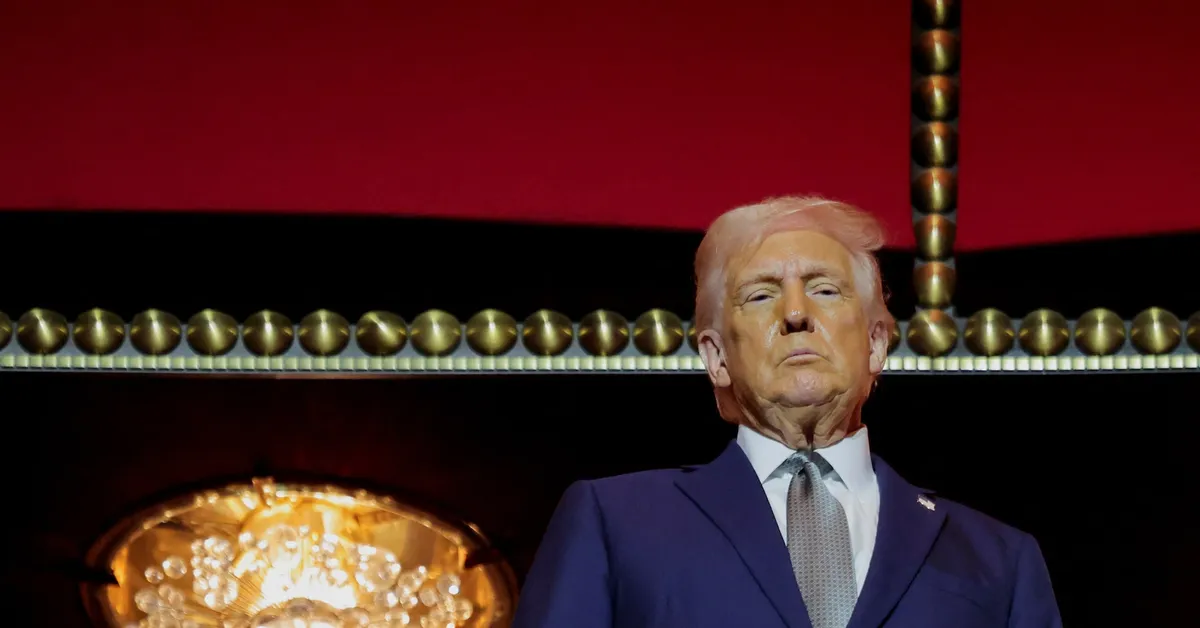
On March 19, a federal judge granted a temporary ruling permitting the takeover of the U.S. Institute of Peace (USIP) by tech billionaire Elon Musk's Department of Government Efficiency (DOGE). This decision came after USIP accused Musk's team of forcefully occupying the building. The emergency ruling followed an incident on Monday when DOGE staff, assisted by police officers, gained access to the USIP headquarters, which is situated across the street from the U.S. State Department in Washington, D.C.
The actions taken by Musk's team represent a bold and potentially aggressive step in the Trump administration's ongoing initiative to reduce the federal workforce, which currently numbers around 2.3 million, and cut government costs. U.S. District Judge Beryl Howell expressed strong criticism of the manner in which DOGE entered the building, describing their tactics as "terrorizing." However, she opted not to halt DOGE's actions temporarily, despite USIP's request for an injunction to prevent what they termed an unlawful dismantling of the institute.
During the proceedings, Judge Howell noted that USIP's lawsuit was complicated, as it was filed on behalf of only five board members rather than the entire board. Furthermore, she pointed out that the ousted president of USIP was not included as a plaintiff. Despite these legal technicalities, Howell conveyed her dismay at the aggressive tactics employed by DOGE, particularly the involvement of armed police in the operation.
The altercation on Monday escalated when a small group of USIP staff initially locked all entrances to the building. However, DOGE employees, with police assistance, forcibly expelled the institute's president and several staff members. According to an affidavit from USIP's chief security officer, he had requested police assistance after DOGE staff attempted to enter. To his surprise, upon the police's arrival, they indicated their intent was to remove USIP personnel.
A spokesperson from the White House stated before the ruling that President Donald Trump was exercising his presidential authority and would not allow "rogue bureaucrats" to obstruct government operations. The lawsuit filed by USIP characterized DOGE's actions as "literal trespass" and an unlawful takeover executed by force. The suit alleges that DOGE personnel rummaged through offices to access sensitive computer systems and infrastructure.
USIP, established by Congress in 1984, is a nonprofit organization that aims to protect U.S. interests by preventing violent conflicts and facilitating peace agreements globally. This year, the institute is projected to receive approximately $55 million in funding from Congress, alongside private donations. The lawsuit contends that DOGE's takeover is a violation of federal law, as USIP is not a government entity.
On March 14, Trump dismissed a majority of USIP's board members, a move described in the lawsuit as unlawful due to the absence of justification for their removal. Three board members, including U.S. Secretary of State Marco Rubio and Defense Secretary Pete Hegseth, remain in their positions. The ousting of USIP's president was part of a broader strategy to install Trump loyalists, coinciding with the takeover on Monday. The lawsuit also highlights that Trump inaccurately designated the institute as a "government entity" in an executive order, claiming it was "unnecessary."
As the situation unfolds, both DOGE and USIP have not yet provided comments following the judge's ruling, and the White House has refrained from making further statements at this time. Another hearing on the lawsuit is anticipated, although the date remains unspecified.